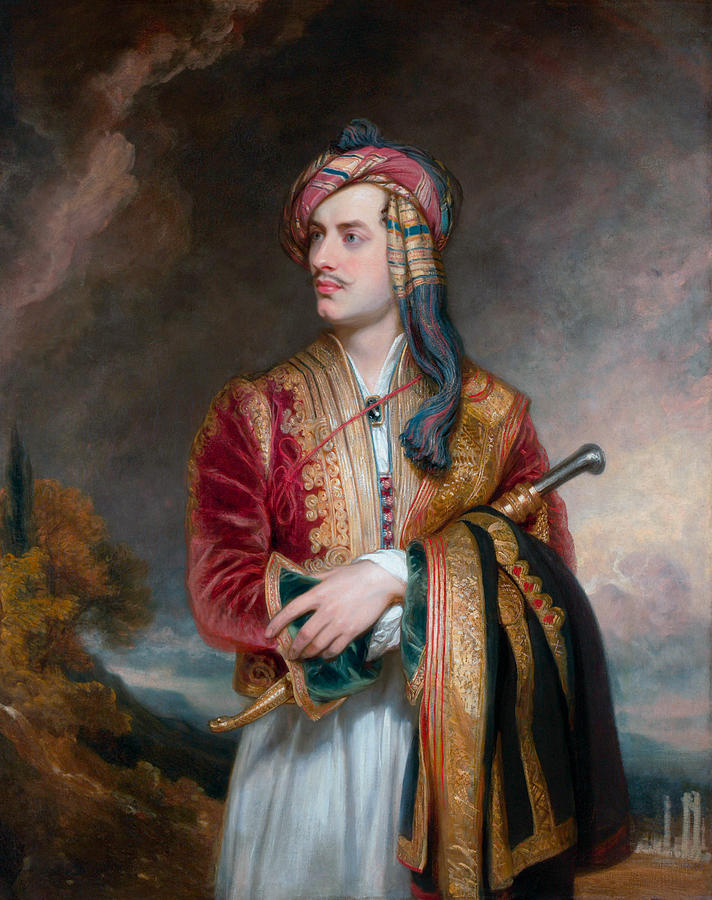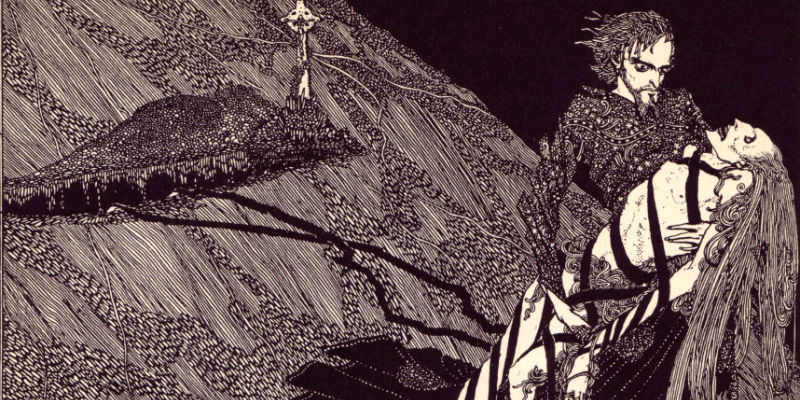
What’s poetry? Names of race horses.
The necessarily accidental is important to poetry, just as it is for any pleasurable human activity.
J.V. Cunningham (1911-1985) is given 3 pages in J.D. McClatchy’s 560 page The Vintage Book of Contemporary American Poetry (McClatchy was a long time professor at Yale and editor of the Yale Review).
Cunningham, the rhyming, court jester, poet among the prose poetry royalty of this post-High-Modernism 20th century-defining anthology, is represented by 2 poems and some epigrams.
Here’s Cunningham’s first stanza from “For My Contemporaries” (reprinted in the volume); the quatrain serves as an ironic epitaph for the book and its 65 poets:
How time reverses
The proud in heart!
I now makes verses
Who aimed at art.
The irony is that “verses” are not “art” since the Pound/Eliot/Williams revolution a hundred years ago. Cunningham, the oddball rhymer, has failed to make “art,” and now merely makes “verses.”
When McClatchy’s anthology came out in 1990—during the glorious beginnings of MFA America, this was surely how these verses were read: Poor Mr. Cunningham, versifier, admits he failed at “art.”
Today, we can read these lines as a sly prophecy: time punishes the “proud” who “aimed at art,” (“art” according to MFA tastes) the “proud,” in the end, forced to admit poetry is “verses.”
There is some verse in this anthology—Roethke, for instance.
McClatchy’s high-minded and reconciling introduction begins:
“There is no need for any anthology to choose sides. No critic has to deploy our poets into opposing battle lines with names like Paleface and Redskin, or Academic and Avant-Garde.”
Hold on a second. The avant-garde is academic. “Paleface and Redskin” one ought to recognize as poetry criticism terms, such as “raw” and “cooked” or “ancient” and “modern.”
American poetry criticism has been timid since 1900—pushing real critics like Edgar Poe and William Logan aside as too fearsome or mean (honest talk apparently promotes those dangerous “battle lines).
Not only timid, but naive, for McClatchy’s battle talk assumes academia isn’t everywhere since Modernism’s climb to prominence in the early 20th century.
McClatchy goes on:
“Best just to duck: the field echoes with sniper fire from the poets themselves. Whitman complained he couldn’t stomach Poe’s “lurid dreams.” Dickinson wouldn’t read Whitman at all: she had been told he was “disgraceful.” William Carlos Williams railed at T.S. Eliot’s Waste Land for having wiped out our world as if an atom bomb had been dropped upon it.”
McClatchy assumes that Whitman dissing Poe is an issue for people outside of academia—it’s not. The man on the street today, if they look at poetry at all, is not saying to themselves, “Oh God, Whitman doesn’t like Poe!” It’s a purely academic concern. McClatchy’s second example is pertinent outside of academia—the morality of poetry—but notice this example is from the 19th century. In the third example we are back in the 20th century: it’s only an issue to a few inside academia that WC Williams felt “The Waste Land” was an “atom bomb.”
Richard Hugo (1923-1982), with 5 pages in the anthology beginning on page 194, wrote gritty, authentic poems about Montana working-class towns—when he was a professor. (University of Montana.) “Degrees of Gray In Philipsburg” begins:
You might come here Sunday on a whim.
Say your life broke down. The last good kiss
you had was years ago. You walk these streets
laid out by the insane, past hotels
that didn’t last, bars that did, the tortured try
of local drivers to accelerate their lives.
Only churches are kept up. The jail
turned 70 this year. The only prisoner
is always in, not knowing what he’s done.
The poem goes on for three more stanzas like this—it would make a great beginning to a hard-boiled detective novel, but as a poem, what’s the only thing we get?
“You” are having a really lousy time in Philipsburg, Montana.
We see in the short Vintage bio of Hugo: “Hugo was born and educated in Seattle. He studied there with Theodore Roethke, the strongest influence on his early work.” (Both were troubled men who didn’t live to be 60.)
Roethke was born in 1908, almost too old to be in this anthology, but perhaps McClatchy, in his ecumenical spirit needed to include “The Waking” with “Skunk Hour,” “One Art” and “Daddy,” some decent rhyming poems, among all the 20th century prose poems.
Or maybe the issue isn’t rhyme at all—Roethke taught Hugo; this is what’s important; respectful, institutional continuity.
Robert Lowell and Elizabeth Bishop, who open the anthology, privileged, and privileged to receive 20 pages apiece (most poets get about 5) were both teachers. Bishop taught at Harvard; Lowell was the first “name” poet to teach at Iowa and jump-start the Creative Writing Program era.
Creative Writing programs typically consist of two branches: Fiction and Poetry.
This leads to an interesting observation about contemporary American poetry.
Let’s forget about rhyme and form. It became increasingly irrelevant as the 20th century progressed. Writing students choose fiction or poetry. So what characterizes this “poetry” that no longer looks like poetry?
It makes sense that what’s most important for American poetry is that it be unlike fiction, or at least unlike what fiction often aspires to become—a film. Otherwise the MFA in poetry might just disappear—why couldn’t “poetry” students just get an MFA in writing?
Why get a poetry MFA? To learn the craft of rhyme and meter? Is that what Jorie Graham learned and subsequently taught? No.
What, then, describes the kind of poetry that we see in 1990’s The Vintage Book of Contemporary American Poetry?
Is this why poetry has become so unpopular? Why poetry these days has no clout? Look what it had to do and what it has to do (we are still in the MFA era): don’t be fiction and don’t be poetry—as it existed for centuries prior to the 20th.
I already mentioned Hugo (whose work in the anthology seems nothing like Roethke’s) and his poetry which reads like the first page of a hard-boiled detective novel set in Montana.
Is critically acclaimed poetry today nothing more than a kind of mentally defective fiction? Fiction, but fiction unable to be carried to completion?
The ballad is a poem that tells a story; but there are no ballads in McClathchy’s anthology of five hundred plus pages.
One does not get an MFA in poetry to learn to write ballads.
It seems the MFA in poetry is determined to keep “story” away, since students might be inclined to get a fiction MFA, instead.
Is there a kind of unspoken rule about poetry as comatose fiction? Fiction which deliberately fails as fiction? Richard Hugo can write a damn good introductory paragraph or two for a Montana mystery novel—therefore he’s a poet.
Richard Hugo’s poetry is depressing.
The introductory (or back-drop) rhetoric of hard-boiled detective fiction is commonly stark and moody.
Edgar Poe, creator of the template, begins one of his famous detective tales: “At Paris, just after dark one gusty evening in the autumn of 18__”
The master sets the mood with just a few words.
20th century poets generally did the same—but using far more words; perhaps because they had to write about something, but no actual tale was forthcoming?
Very few Americans are going to sit and watch a movie without a love story. Movies and novels need a love plot. Your fiction MFA student knows this.
Was MFA poetry, which began to dominate letters starting in the middle of the 20th century, concerned with love?
McClatchy’s anthology contains only a few pages of what could be called love poetry. There are but two love poems of the “I love you” variety—only two, in its 537 pages: “Having a Coke with You” by Frank O’Hara and “To Dorothy” by Marvin Bell, the latter of which may be the worst love poem ever, as it begins:
You are not beautiful, exactly.
You are beautiful, inexactly.
Robert Lowell sets the tone. In his 20 pages of poetry there’s one reference to romance: “too boiled and shy/and poker-faced to make a pass.” It isn’t until page 47 of the anthology that we get “I Knew a Woman” by Roethke, which seems more about sex than love, but in this anthology we certainly can’t be picky.
Audrey Lorde’s “Movement Song” (p. 414) opens with
I have studied the tight curls on the back of your neck
moving away from me
beyond anger or failure
your face in the evening schools of longing
through mornings of wish and ripen
we were always saying goodbye
in the blood in the bone over coffee
before dashing for elevators going
in opposite directions
without goodbyes.
“Over coffee before dashing…? This is OK but still rather reticent and indirect. Not the mad Romanticism of Diane Seuss (whose collection just won the Pulitzer).
There’s this from “Meditation at Lagunitas” by Robert Hass (p. 470) but can this even remotely be called love?:
There was a woman
I made love to and I remembered how, holding
her small shoulders in my hands sometimes,
I felt a violent wonder at her presence
like a thirst for salt, for my childhood river…
…It hardly had to do with her.
Yes, a poet can certainly stand above a man and a woman and make remarks about how they will never be one, as Hass does in “Misery and Splendor” (p. 472) but what is this really saying except ‘too bad, you guys?’ This might end a novel nicely; the poem hasn’t earned this ending, though; that’s sort of the problem:
They feel themselves at the center of a powerful
and baffled will. They feel
they are an almost animal,
washed up on the shore of a world—
or huddled against the gate of a garden—
to which they can’t admit they can never be admitted.
It’s a brutal scene—though it feels like a poetry invested in abstraction somewhat against its will.
The height of love in the volume is reached by Marilyn Hacker’s
If we talk, we’re too tired to make love, if we
make love, these days, there’s hardly time to talk.
Or this, from Hacker, with roaring rhetoric, a few pages later:
Tomorrow night the harvest moon will wane
that’s floodlighting the silhouetted wood.
Make your own footnotes; it will do you good.
Emeritae have nothing to explain.
She wasn’t very old, or really plain—
my age exactly, volumes incomplete.
“The life, the life, will it never be sweet?”
She wrote it once; I quote it once again
midlife at midnight when the moon is full
and I can almost hear the warning bell
offshore, sounding through starlight like a stain
on waves that heaved over what she began
and truncated a woman’s chronicle,
and plain old Margaret Fuller died as well.
Or we could possibly consider these from the anthology, love: “Daddy” by Plath or Sexton’s “I have gone out, a possessed witch…” or Louise Glück’s
It is not the moon, I tell you.
It is these flowers
lighting the yard.
I hate them.
I hate them as I hate sex,
the man’s mouth
sealing my mouth, the man’s
paralyzing body—
Not really.
C.K. Williams has a poem on suburban pals lured by a pimp for cheap, quick sex in NYC; the poem lurid, passive, reactive, helpless.
The overriding tone of the Vintage Book of Contemporary American Poetry is learned, luxurious, meditation tied up by sadness. Here is Richard Howard, one of those masters born between 1925 and 1929:
Rezzonico…Disraeli…We realize our task.
It is to print earth so deep in memory
that a meaning reaches the surface. Nothing but
darkness abides, darkness demanding not
illumination—not from the likes of us—
but only that we yield. And we yield.
The poets of this volume have all been trained not to be Romantics; a few rebel, but mostly they shy away from poetic devices that moan and sing. The anthology meticulously talks and talks and talks.
When did American poetry feel comfortable with the fact that the Keats cat and the Shelley cat and the Byron cat no longer dwell in the household, just because a guy named Ezra told them to go? When did poetry become supercilious chat, baroque chatter? If perception in life is nearly all, think how ruthlessly perception rules poetry: when rejection of rhyme came to be seen not as a palace assassination but as an exhausted queen doing loads of purple laundry, “I’m too busy to rhyme,” American contemporary poetry must have begun to feel like a starving person listening to financial advice—on how to give endlessly to charity.
How does one bypass all the usual academic netting and state plainly the gist of what troubles professional contemporary American poetry? I may be failing, but I hope we can see it’s necessary more than one person try.
Modern American poetry has long needed a wake-up slap. Which, of course, will not do any good. Time must deal with poetry.
What do we get in McClatchy’s excellent anthology? Character development, psychological insight, plain talk, insights, philosophy, humor, love? Not really. We get something more effete and specialized. The chaste and the vocabulary-heavy.
I hope it doesn’t sound too strange to say it plainly.
The voice in almost all the poems in the Vintage Book of Contemporary American Poetry is the same: the voice of a very wealthy person, cultured, delicate, shy, deeply self-absorbed, of a calm disposition, fond of secular iconography, passing memories, trinkets, country roads, and anxious to introduce us to a sky as it might appear at dusk…
Salem MA 5/20/22





















